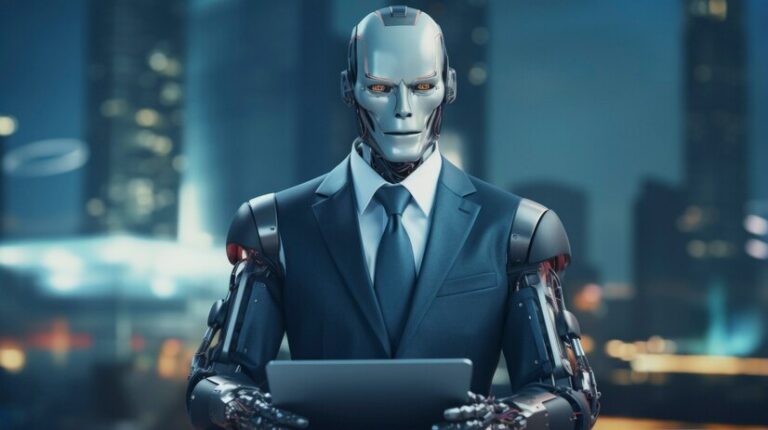A groundbreaking shift is unfolding with the advent of a new breed of artificial intelligence (AI), poised to challenge conventional notions about technology. While automation concerns have long haunted jobs in warehouses and fast-food sectors, a recent report from the Burning Glass Institute and SHRM suggests that the biggest impact of generative AI, like that used in chatbots such as OpenAI’s ChatGPT, will be on white-collar workers in high-paying sectors, particularly banking and tech.
Contrary to widespread assumptions, generative AI is not solely a threat to jobs requiring minimal skills; instead, it is set to reshape industries that have traditionally been untouched by technological disruptions. The Burning Glass Institute’s president, Matt Sigelman, emphasizes that workers with college degrees, especially those in banking and tech, may find themselves facing AI replacements—a paradigm shift that challenges the notion of job security for highly-educated professionals.
The report estimates the share of payroll spending for hundreds of corporations that goes to workers in the 200 occupations most likely to be influenced by generative AI. Occupations such as business analysts, marketing managers, software developers, database administrators, project managers, and lawyers, often held by affluent college graduates, are at the forefront of potential AI disruption. Financial institutions like Goldman Sachs, JPMorgan Chase, and Morgan Stanley, along with tech giants such as Google, Microsoft, and Meta, are projected to be most affected.
The financial sector, known for its high percentage of payroll spending on workers in roles susceptible to generative AI, could witness substantial savings through AI automation. The report suggests that banks and some tech companies allocate 60 to 80 percent of their payrolls to workers in roles most likely impacted by the technology.
In contrast, industries like retail, restaurants, and transportation are expected to be less affected by generative AI, as they predominantly employ workers without college degrees in roles involving customer assistance, stocking shelves, cooking, and handling baggage. These industries typically spend less than 20 percent of their payrolls on roles susceptible to generative AI disruption.
While the report refrains from predicting specific job losses tied to generative AI, it underscores the crucial need for increased training to equip workers for the impending technological shift. SHRM’s chief executive, Johnny C. Taylor Jr., emphasizes the necessity for substantial investments by corporations and governments to stay ahead of the curve.
As generative AI continues to permeate various industries, this report serves as a wake-up call, urging stakeholders to recognize the transformative impact on the workplace and highlighting the urgency of proactive measures to prepare the workforce for the evolving landscape. The burning question now is whether companies will harness the savings from AI automation or reinvest the funds to stimulate growth and employment.




Comments are closed